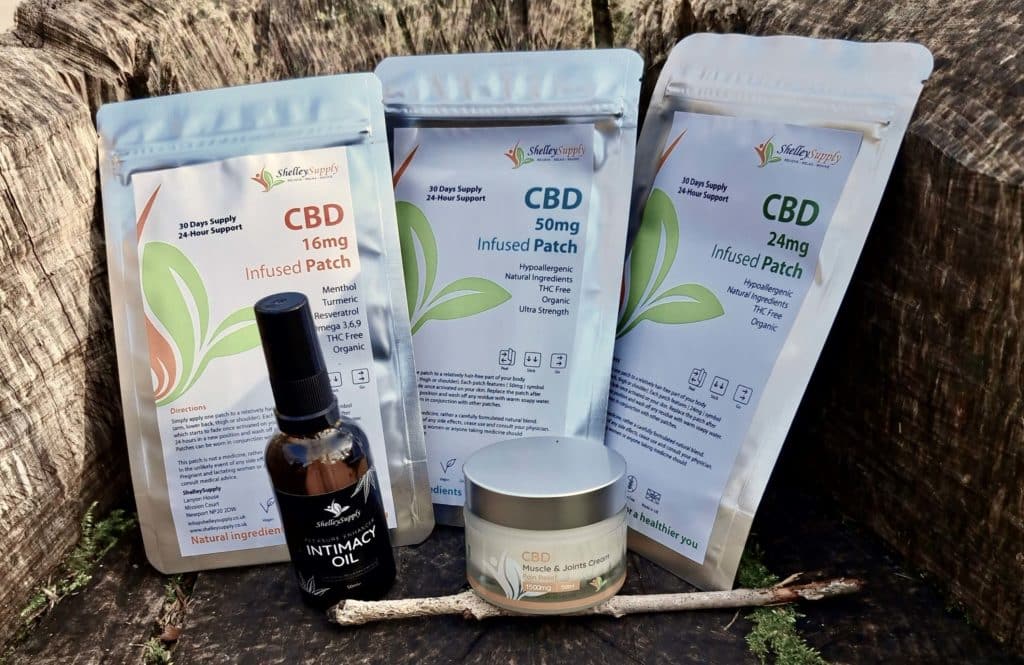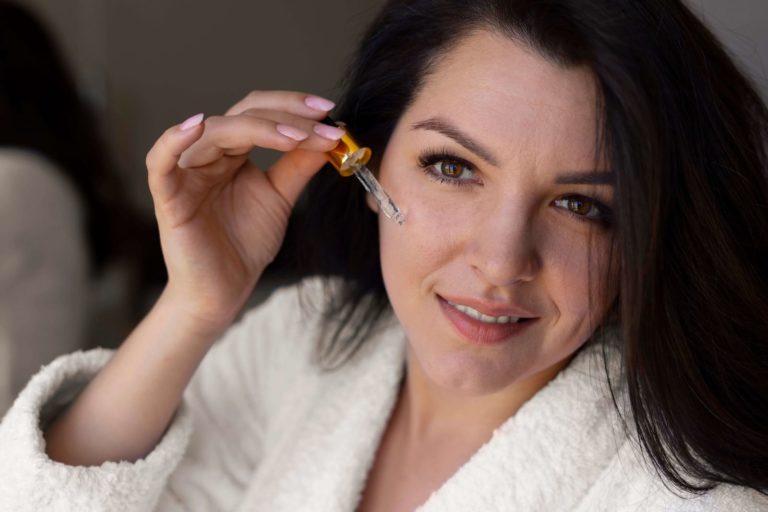So there you are, looking at a number of CBD products, when you realise that there are lots of different numbers. While the packages for every CBD product will list a specific milligram amount, or the CBD strength, how much CBD is right for YOU?
In short, working out what strength CBD oil to take for your needs can be complicated.
But we’re going to help you make sense of the world of CBD oil strength, and explain how you can find your ideal CBD dosage.
There are a few factors to bear in mind though. So before we get to the nitty gritty, let’s answer a few key questions about CBD products and knowing what to look for when buying CBD oil based products.
How can you take CBD oil?
There are various different ways to take CBD oil, with CBD products coming in a growing range of shapes, sizes, flavours and applications.
While the CBD potency might remain the same, the effects may vary depending how you take it. To summarise the world of CBD products into just a few categories, these are the most common ways to consume CBD.
- Sublingual Administration: This method involves placing drops of CBD oil under the tongue and holding it there for about 60 seconds to allow for absorption through the sublingual glands. By bypassing the digestive system, sublingual administration allows for quicker absorption into the bloodstream. Sublingual CBD oil is typically sold with a dropper to ensure precise dosage. This is perhaps the most precise and effective method of taking CBD.
- Oral Consumption: CBD oil can be taken orally, either by swallowing it directly or by adding it to food and beverages. This method involves the CBD oil passing through the digestive system, where it is metabolised before being absorbed into the bloodstream. Oral consumption of CBD oil may take longer to produce effects compared to sublingual administration.
- Topical Application: CBD oil can also be applied topically to the skin. CBD-infused creams, patches, lotions, and balms are commonly used for targeted relief of muscle soreness, joint pain, or skin conditions. When applied topically, CBD oil interacts with local cannabinoid receptors in the skin without entering the bloodstream.
- Inhalation: CBD oil can be inhaled using vaporizers or vape pens specially designed for this purpose. Inhalation allows for rapid absorption of CBD into the bloodstream through the lungs. Vaping CBD oil is a popular method among individuals seeking immediate effects. However, it is important to note that inhaling any substance may pose risks to respiratory health and should be approached with caution.
All of these different methods of CBD oil consumption vary in intensity and effects from user to use. Factors such as onset time and duration of effects will also vary depending on how you consume your CBD products.

What are the effects of CBD?
CBD’s effects can vary from person to person. For most people the effects are a sense of mental relaxation. Most people may also find that they experience physical relaxation, including less physical pain in joints or muscles.
The specific effects experienced may depend on factors such as dosage, CBD concentration in the product, and the individual’s body chemistry and metabolism.
CBD interacts with the body’s endocannabinoid system, a complex network of receptors and neurotransmitters involved in regulating various physiological processes.
These are some of the most common effects of taking CBD:
- Pain Relief: CBD has been shown to have analgesic properties, making it potentially effective in managing different types of pain. This can include chronic pain, neuropathic pain, and pain associated with inflammatory conditions. CBD interacts with receptors in the endocannabinoid system involved in pain signalling, potentially reducing pain perception.
- Anxiety and Stress Reduction: Most commonly, CBD is widely used for its potential to alleviate anxiety and promote relaxation. It interacts with receptors in the brain involved in mood regulation and stress response, potentially reducing anxiety and improving overall well-being. CBD oil may be helpful for individuals with generalised anxiety disorder, social anxiety, or post-traumatic stress disorder (PTSD). However it can also be very useful for people looking for a way to relax after work or after a busy day.
- Anti-inflammatory Properties: Studies into CBD have shown promising anti-inflammatory effects. This suggests that CBD could be beneficial for individuals with inflammatory conditions such as arthritis, inflammatory bowel disease (IBD), or multiple sclerosis (MS). By interacting with immune cells and receptors involved in inflammation, CBD may help reduce inflammation and associated symptoms.
- Neuroprotective Effects: CBD has been studied for its potential neuroprotective properties. It may help protect brain cells from damage and support overall brain health. CBD’s neuroprotective effects have led to research exploring its potential in treating neurodegenerative disorders such as Alzheimer’s disease and Parkinson’s disease.
- Sleep Improvement: Studies also suggest that CBD could be used to improve sleep quality and promote better sleep patterns. By interacting with receptors involved in the sleep-wake cycle, CBD may help regulate sleep and wakefulness, making it beneficial for individuals with insomnia or other sleep disorders.
- Antiemetic Effects: CBD has been studied for its potential to reduce nausea and vomiting, making it useful for individuals undergoing chemotherapy or experiencing medication-induced nausea. CBD interacts with receptors in the brain associated with nausea and vomiting control.
One key thing to note is that CBD does not produce intoxicating or psychoactive effects commonly associated with recreational cannabis such as THC. Of course the effects of THC are what you experience when you smoke marijuana, which is a completely different experience to taking CBD.
Hemp derived CBD products also do not make you feel nauseous or sick. In fact CBD is generally well-tolerated, but there have been reported side effects in a very small minority of people.
As a result it’s advisable to start with a low dosage and gradually increase as needed, observing how your body responds to the effects.

How long do the effects of CBD last?
The duration of CBD’s effects can vary depending on several factors. This can include the individual’s metabolism, method of consumption, dosage, and how much CBD is actually in the product.
While CBD affects most of us the same way, some people might feel the effects with less CBD, whereas others might need a strong CBD product to feel the benefits.
As for the onset of the effects of CBD oil, the following is a rough overview of how long it takes for CBD to be felt.
- Sublingual Administration: When CBD oil is administered sublingually, or under the tongue, the effects may start to be felt within 15-30 minutes. The peak effects occur usually within 1-2 hours. The duration of CBD effects may last anywhere from 2 to 6 hours.
- Oral Consumption: When eating or drinking CBD oils, it needs to pass through the digestive system, where it undergoes metabolism before entering the bloodstream. The onset of effects may be slower, typically within 30 minutes to 2 hours after ingestion. The duration of effects can vary but generally lasts longer compared to sublingual administration, typically ranging from 4 to 8 hours.
- Topical Application: Applying CBD oils topically, or to the skin, it interacts with cannabinoid receptors in the skin without entering the bloodstream. The effects are typically localised, providing targeted relief to the area of application. The duration of effects may vary but is generally shorter compared to other methods, typically lasting 1 to 3 hours. Using CBD patches allows for a slow release CBD intake, which can be useful for people suffering from ongoing aches and pains, or anxiety.
- Inhalation: When CBD oil is inhaled, it is rapidly absorbed through the lungs and enters the bloodstream, resulting in almost immediate effects. Inhalation provides the quickest onset of effects, typically felt within minutes. The duration of the effects is often shorter, and may range from 1 to 3 hours.
Of course these are general guidelines, and your own experience may vary. There are a host of factors such as personal metabolism, tolerance, and the specific CBD product being used which can influence how long the CBD effects last.
If you’re new to CBD then it’s a good idea to test the waters with low strength CBD oil products and see how you react.
What strength CBD do I need?
CBD oil strength is typically measured in milligrams (mg) of CBD per millilitre (ml) of oil. But of course, the actual CBD dosage will depend on the volume of the product you’re taking.
Here’s an overview of common CBD oil strengths and their potential applications:
- Low Strength up to 30 mg (150-300 mg/ml): This strength range is suitable for individuals who are new to CBD or have mild symptoms. Low-strength CBD oil can be a good starting point for general wellness, mild pain relief, or reducing occasional stress and anxiety. Many CBD edibles and drinks will fall into this CBD dosage.
- Medium Strength up to 60 mg (300 – 600 mg/ml): Medium-strength CBD oil is appropriate for individuals with moderate symptoms. It may provide more significant pain relief, anxiety reduction, and anti-inflammatory effects. Medium-strength CBD oil can be beneficial for individuals with chronic pain conditions, moderate anxiety, or inflammatory conditions.
- High Strength up to 120 mg (600 – 1200 mg/ml): High-strength CBD oil is ideal for individuals with severe symptoms or chronic conditions. It may offer stronger pain relief, enhanced relaxation and stress reduction, and more significant effects on inflammation and mood. High-strength CBD oil is often used by individuals with severe chronic pain, high levels of anxiety or stress, or debilitating conditions.
- Extra Strength over 120 mg (over 1200 mg/ml): Extra-strength CBD oil should be used with caution and with guidance from a healthcare professional. It is recommended for individuals with intense symptoms or those seeking potent therapeutic effects. Extra-strength CBD oil may be suitable for individuals with severe chronic pain, advanced stages of certain conditions, or those who have built a tolerance to lower strengths.
Most people using CBD for relaxation will likely choose a lower dose, for example with CBD gummies, drinks or other consumables. If you are experiencing acute pain then you might consider a high potency CBD oil instead.
However if you are experiencing pain, depression or other serious medical conditions, you should always make sure to discuss your situation with a medical professional first. You can of course mention that you are considering using CBD products.
While CBD extract doesn’t tend to cause any complications, it can interact with some medications such as blood thinners.

ShelleySupply For High Quality CBD Products
Here at ShelleySupply, we offer a range of high quality CBD isolate products. This includes CBD patches, CBD intimacy oil, and CBD joint and muscle cream.
We also stock Orange County CBD gummies which are made from broad spectrum CBD oil, and come in a range of flavours and CBD strength.
Most of our products fall in the low potency to medium strength bracket. For example, our CBD patches are available in strengths from 8 mg up to 50 mg.
If you’re looking for high quality CBD products to ease pain, anxiety or stress, take a look at our online shop.



